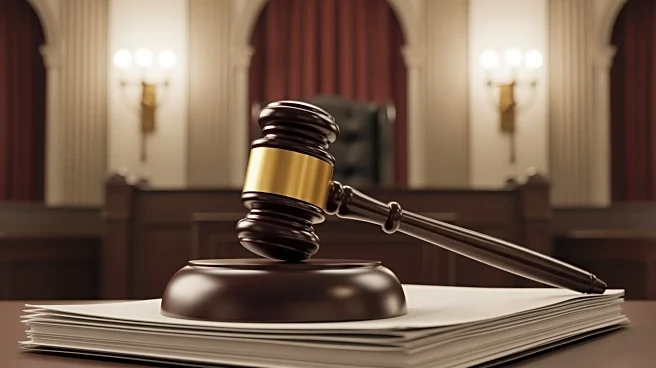What's Happening?
The Supreme Court has delayed its decision on whether to grant a stay of a lower-court order blocking the deployment of the National Guard in Chicago. Instead of issuing a ruling, the court has requested
further briefing on the definition of 'regular forces' and its implications for the case. This move suggests that the justices are not yet convinced of President Trump's position and are considering arguments that could render the deployment unlawful. The court's decision to keep the injunction in place indicates that it does not view the situation as an immediate emergency.
Why It's Important?
The Supreme Court's handling of this case is significant as it involves the president's authority to deploy the National Guard within U.S. cities. The court's request for additional briefing highlights the complexity of the legal issues at stake, particularly the interpretation of 'regular forces.' The outcome of this case could have far-reaching implications for the balance of power between federal and state authorities and the president's ability to use military forces domestically. It also reflects the court's cautious approach to high-stakes disputes involving executive power.
What's Next?
The parties involved in the case are expected to submit their additional briefs by November 17. The Supreme Court will then review the submissions before making a final decision. The case could set a precedent for future disputes over the president's authority to deploy military forces within the United States. Stakeholders, including legal experts and civil rights advocates, will be closely monitoring the court's deliberations and potential implications for civil liberties and federalism.









